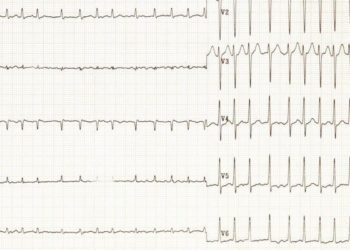Collaborative home-based palliative care approach effective for heart failure patients
1. A regional collaborative, home-based palliative care (CHPC) program for heart failure (HF) patients was associated with 48% decrease in in-hospital death, with a number needed to treat of 3.
2. The CHPC program was also associated with shorter hospital stays, increased time to first hospital admission, and decreased rates of hospital admission, ED use, and ICU use.
Evidence Rating Level: 2 (Good)
Study Rundown: At-home death and avoiding unwanted hospital treatments are both indicators of quality palliative care. However, a study in Ontario, Canada found that 75% of patients with heart failure (HF) passed away in hospital between 2010 and 2015, and 32% received home-based palliative care, despite other studies showing that as much as 90% of individuals prefer end-of-life care to happen at home. Currently, the literature on collaborative home-based palliative care (CHPC) models for HF patients have been single centre and not included an approach with in-person home visits, and they’ve shown mixed results on quality of life indicators. Therefore, this current matched cohort study based out of Ontario, Canada aimed to implement a CHPC program for HF patients, with the primary outcome measured being rates of death out-of-hospital. CHPC patients were matched to usual-care patients by their duration of disease, date of passing, and likelihood of receiving palliative care, but was not able to account for NYHA class or LVEF, as that data was unavailable for the non-CHPC patients. Overall, the study demonstrated a 48% decreased risk of passing away in hospital with the CHPC patients, as well as shorter hospital stays, increased time to first hospital admission, and decreased rates of hospital admission, use of the emergency department (ED), use of intensive care (ICU).
Click here to read the study in CMAJ
Relevant Reading: Association between palliative care and healthcare outcomes among adults with terminal non-cancer illness: population based matched cohort study
In-depth [retrospective cohort study]: The study population consisted of 245 HF patients who received CHPC matched to 1172 who received care as usual, who passed away between 2013 and 2019. To get into a CHPC program, patients are referred by their primary care or specialist providers. The core principles emphasized in CHPC are: collaboration amongst healthcare providers (cardiologists, primary care, and palliative care), shared decision making, advanced care planning, and education on managing HF at home. This would involve an initial visit with a palliative care provider to assess goals of care and decision-making needs, provide supplies, and offer contact information to reach a palliative provider 24/7. The palliative team would then pass on the care plan to the patient’s other healthcare providers. Overall, the results showed that 41.2% of CHPC patients passed away in hospital, compared to 78.2% of usual care patients, representing a 48% decreased risk of dying in hospital for the CHPC patients (relative risk 0.52, 95% CI 0.44-0.61) with a number needed to treat of 3. Additionally, the study found that CHPC was associated with increased time to first hospital admission (hazard ratio 0.39, 95% CI 0.31-0.5), and lower rates of hospital admission (RR 0.64, 95% CI 0.55-0.74), ED use (RR 0.67, 95% CI 0.55-0.82), and ICU use (RR 0.57, 95% CI 0.39-0.84). In conclusion, a regional CHPC model was implemented that improved numerous outcomes, such as out-of-hospital death, amongst other indicators of quality end-of-life care.
Image: PD
©2022 2 Minute Medicine, Inc. All rights reserved. No works may be reproduced without expressed written consent from 2 Minute Medicine, Inc. Inquire about licensing here. No article should be construed as medical advice and is not intended as such by the authors or by 2 Minute Medicine, Inc.









